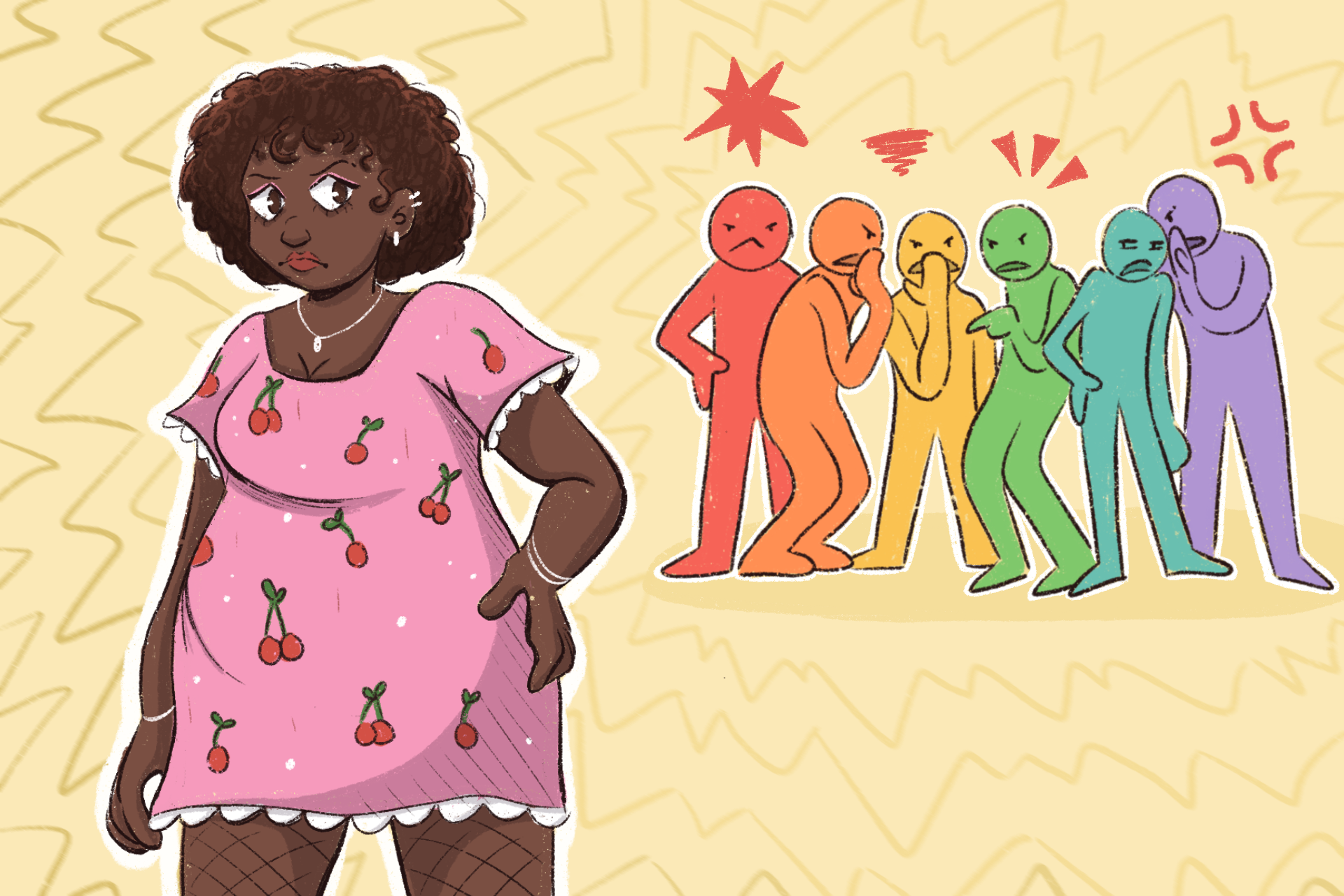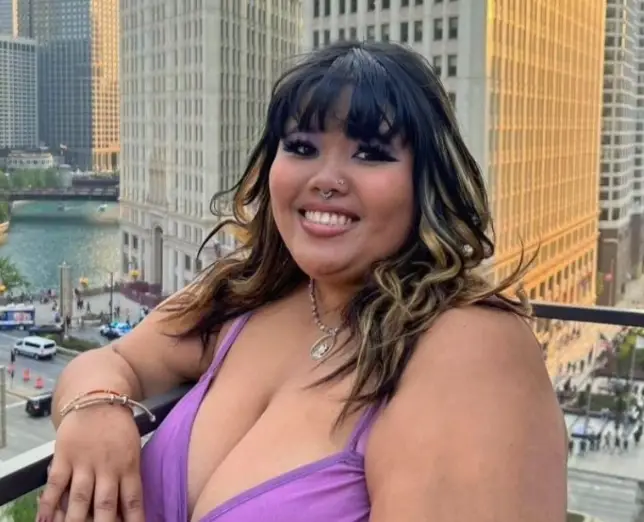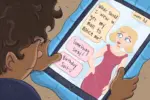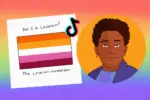I had never come across such blatantly fatphobic “preferences” on dating apps. Despite having every racist and sexist comment thrown my way from men, I had yet to be disappointed by the queer community whose tight-knit, “flower-power” sexual liberation had me fooled into believing that finding love would be safe and easy without men. Unfortunately, I was mistaken.
Racism, sexism and biphobia have been popular topics of discourse within the queer community.All three prejudices run rampant in queer dating, from the long-standing preference against effeminate men and for other white queers to the belief that bisexual individuals are cheaters. Rarely has it been discussed that fatphobia also exists in extremes within the queer community, and the lesbian community seems to be a place of particular harshness.
When I was 16, I came out to my parents as a bisexual, an anti-climactic event where my mother ignored it and my father brushed it off as a “phase” bound to dissipate once I realized that women are not attracted to fat women.
I spent three years indulging in the pond of underwhelming mens on Bumble, Tinder, Hinge, OKCupid, even hookup apps, only to be fetishized for my fat body, ethnicity and “alternative” style. A change was needed, so I defied my father’s warnings and dabbled into lesbian dating apps such as HER and Taimi, both of which produced disappointing results. Most accounts were men in disguise, women looking for a third in their heterosexual relationship (a term called “being a unicorn”) or straight women looking for friends, all commonalities found in the lesbian community.
Though my initial vexations surrounded little response rates, I became aware of an increasing amount of queer women (dis)interested in me for aggressive fatphobia roleplay or threesomes. Some women made it clear they didn’t want any Black women or fat women, while others messaged me inquiring about degrading roleplay, calling me a fat pig or cow deserving of being tied up, humiliated and so forth. I was shocked seeing the amount of nonconsensual demands and insults flowing in from other women, most of whom were either body builders or conventionally “fit” women.
Perhaps my father was correct in saying fat queer women are the antithesis of what other queer women want, shattering my fantasy that queerness automatically tolerates all other minority identities. In fact, many people inaccurately perceive queer communities to be more progressive in body positivity than they actually are.
I’m not alone in this thought either.
In fact, studies conducted by the University of New Mexico relayed prevalent shared conflicts with internalized fat acceptance and external fatphobia between arrays of queer and fat interviewees, many of whom also noted coming across “no fats” phrases on dating apps like I had. Some also held common suspicions towards thin people who did express interest in them due to past experiences, something I also allowed to hold me back. I would ghost conventionally attractive women fearing it was a ruse or game between us rather than believing I could be both fat and desirable.
It wasn’t until I actually dated my first girlfriend who was conventionally attractive (according to queer terms) with her masculine presentation, short blonde hair, blue eyes and tall, thin frame that I realized how silly I was being for dating a thin white woman just for the sake of invalidating the external fatphobia I received from other thin women. I realized how unhappy I was being with someone just for the sake of proving everyone wrong about being fat and desirable, especially considering I had no ounce of trust in her during our whole relationship (which, to be fair, was only three months).
My first girlfriend was super tatted and artistic, exactly the kind of queer woman I wanted to be with because this was exactly the kind of queer woman I was told would never like me. Her soft masculinity complimented my loud personality and feminine style, and the certain shyness she carried balanced out my chatty nature. When we walked around town, I felt a certain bragging right, as if to tell the world, “I told you so.” I was proud.
The more we dated, though, the more suspicious I became of her. Her quiet nature manifested into my belief that she just didn’t find me pretty enough to compliment. Her avoidance of affection wasn’t an incompatible love language, but a sign that she began to realize how socially damaging being seen in public with a fat person was. I was so used to holding fatphobia as a general “dating” issue that I dealt with my insecurities around her the same way I would a man: becoming suspicious and pushing myself away. The thing is, though, that fatness is indeed a queer issue and should be recognized as such.
Allison Taylor has a wonderful piece called “What’s Queer About Fat Studies Now?” where she details how intersectional lesbian relationships and fat acceptance actually are. The concept of lesbian relationships defies the masculine stereotypes of cisgender men, offering women and non-men opportunities to re-define what being in a feminine relationship is. Unfortunately, ignoring lingering fatphobia leads to re-creating heteronormative cycles of femininity defined by petite, thin, white women. Acknowledging that fatphobia must be dismantled when re-defining femininity and its romantic relationships offers fat queer women a place to feel more accepted, liberated, secure and confident in the people they pursue.
Taylor has conducted her own studies interviewing fat queer people self identifying as “femmes,” many of whom do not fit what is typically seen as feminine. In her study, one Black fat queer femme detailed re-defining their self-perception as feminine outside of the white-thin paradigm, something I’ve learned to do as well.
Rather than finding a thin white woman who validates my beauty by showing interest in me, I had to find that beauty on my own. I had to break up with my girlfriend and take a long break from rushing myself on dating apps as well, sourcing validation from balanced friendships, inclusive social media circles and going on dates with people who weren’t thin and white, breaking down this need to date as a form of queer validation.
By working on my internal definition of queer femininity and how fat bodies are feminine just as much as smaller ones, I realized that being an inexperienced queer does not mean forcing yourself to prove your queer validity especially in a queer world where you already fit outside of the conventionally attractive box. For others in the queer community, being open minded to how entrenched fatphobia still is is important to come to terms with even if it’s hard to take in. Allowing ourselves to welcome different perspectives of fatness in lesbianism is what successfully tears down a patriarchal heteronormative dating scene, and to begin that journey, we must first listen to other fat femmes.

















